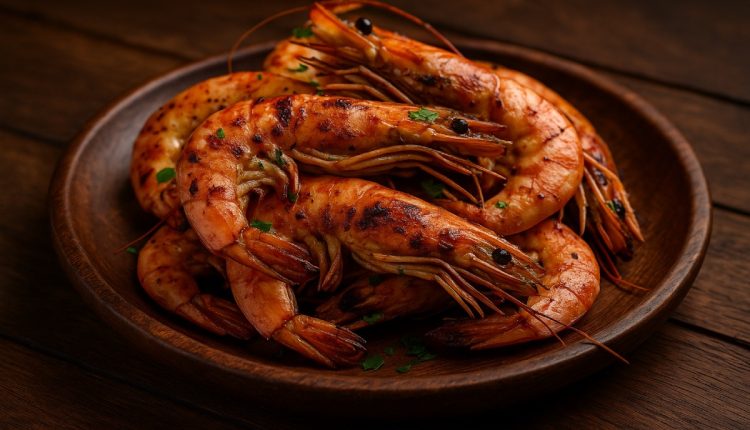Prawns, often considered a seafood delicacy, are more than just a flavorful treat on your plate—they’re a nutritional powerhouse that can boost your overall health. Whether grilled, steamed, pan-fried, or tossed in a curry, prawns are not only versatile in cooking but also offer a wealth of essential nutrients.
If you’re looking for a protein-rich, low-fat food to include in your diet, prawns are an excellent choice. Here’s a closer look at why these tiny crustaceans deserve a regular spot in your meal plan.
1. High in Lean Protein
Prawns are an exceptional source of high-quality protein, providing all nine essential amino acids. Just a 100-gram serving offers approximately 20–25 grams of protein with minimal fat.
Why it matters:
-
Supports muscle growth and repair
-
Aids in tissue regeneration
-
Promotes satiety, helping to reduce overeating
For athletes, gym-goers, and anyone following a low-fat, high-protein diet, prawns are a perfect protein-packed option.
2. Rich in Omega-3 Fatty Acids
Despite their small size, prawns pack a punch when it comes to omega-3 fatty acids—essential fats known to support cardiovascular and cognitive health.
Key benefits of omega-3s:
-
Reduces inflammation in the body
-
Lowers blood pressure
-
Improves cholesterol balance (boosts HDL, reduces LDL)
-
Supports brain function and may help reduce the risk of neurodegenerative diseases
Unlike some other seafood, prawns deliver these healthy fats without being calorie-dense, making them a heart-smart choice.
3. Balanced Cholesterol Impact
Prawns have often been misunderstood due to their cholesterol content. However, new research suggests that:
-
Prawns may increase HDL (good) cholesterol
-
They can help lower LDL (bad) cholesterol
-
When eaten in moderation, prawns do not negatively impact heart health
So, unless advised otherwise by a healthcare provider, moderate prawn consumption can be part of a heart-friendly diet.
4. Packed with Essential Vitamins and Minerals
Prawns are naturally rich in a variety of important micronutrients, including:
-
Vitamin B12 – Vital for nerve health and red blood cell formation
-
Iron – Helps in oxygen transport and prevents anemia
-
Selenium – A powerful antioxidant that supports immune health and thyroid function
-
Zinc – Promotes healing, supports immunity, and aids in enzyme function
-
Phosphorus – Important for strong bones and energy production
These nutrients make prawns a great option for supporting energy, immunity, and overall cellular health.
5. Low in Calories, Zero Carbs
For those watching their weight or managing carbohydrate intake:
-
Prawns are low in calories
-
They are carb-free
-
Suitable for low-carb, paleo, and ketogenic diets
This makes prawns a go-to food for anyone aiming for weight management or blood sugar control without compromising on taste.
Delicious and Diet-Friendly
Prawns are incredibly versatile and easy to prepare. Whether in:
-
A spicy Kerala-style curry
-
A refreshing Asian prawn salad
-
A Mediterranean garlic prawn stir-fry
-
A simple grilled skewer with lemon and herbs
They adapt well to a wide variety of cuisines and cooking styles, making healthy eating more enjoyable.
A Note on Allergies and Sourcing
While prawns are healthy for most people, they are a common allergen. Always ensure:
-
You buy from clean, trusted sources
-
They are cooked thoroughly to eliminate pathogens
-
You check for reactions if eating prawns for the first time
Opt for wild-caught or responsibly farmed prawns for better sustainability and nutritional integrity.
Final Thoughts
Prawns are more than just a delicious seafood dish—they are a nutrient-rich, low-calorie superfood that offers substantial health benefits. With a profile that supports heart health, boosts immunity, fuels muscles, and fits into most diets, prawns are a smart and satisfying choice.
So the next time you’re planning a healthy meal, consider adding prawns to your plate. Your body—and your taste buds—will thank you!


Comments are closed.